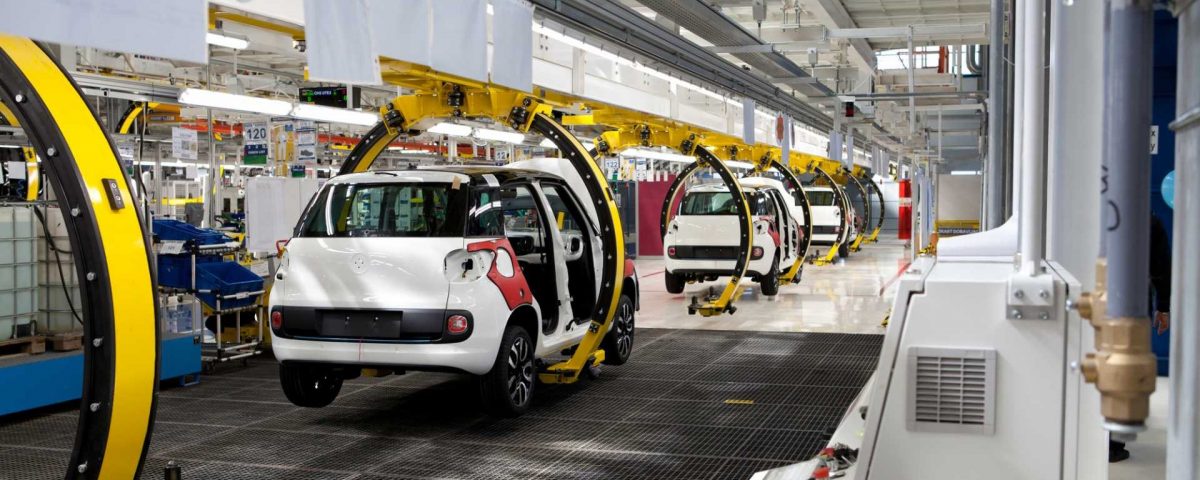Coronavirus and recent trade wars have made one thing clear – the current supply chain model in the automotive sector is unsustainable. Neeraj Kanwar, managing director of one of the world’s largest tyre manufacturing companies, reports.
The past couple of weeks has witnessed numerous carmakers shut their plants across the US, UK and Europe.
We saw Nissan close its Sunderland plant in the UK and Volkswagen, the world’s biggest automaker, announce the temporary closure of its European plants. In fact, plant closures are happening across Europe.
While the automotive industry was already grappling with AI and automation, trade wars, and declining car sales, the COVID-19 outbreak in 2020 has almost decimated it, affecting supply chains and disrupting manufacturing operations the world over.

China is among the world’s largest suppliers of car parts, exporting motor vehicle parts and accessories worth $34.8bn in 2018, according to the UN’s Comtrade database.
However, over-reliance on one country as a source of key components has led to a crisis in the manufacturing world, leaving the automotive industry more exposed to the impact of both Coronavirus and trade wars.
The most vulnerable companies are those that rely solely on China for parts of its supply chain. Disruption of supply chains is a cost that threatens companies’ existence.
Asian, US and EU automakers and suppliers are scrambling to respond to the massive dislocations in their supply chains caused by the coronavirus that broke out in China.
Diversify
Once the current immediate crisis has been dealt with, I believe we will have to look at a future strategy – not put all our ‘eggs in one basket’ . We must look to diversify our supply chains.
Countries such as India, Vietnam, Thailand and others in South East Asia would make a suitable alternative to China. Perhaps, it’s also time for us here in the UK as well, to invest more in manufacturing.
I think we’ve now realised the importance of finding parts supply outside of China. We are still unclear as to when will China get back to full production, probably late April at the earliest. Meanwhile, recovery will vary by region across the globe for automotive manufacturers.

So, how can we diversify supply chains for the future? I’m not proposing abandoning China completely, but at the same time to reduce risk explore other supply chain routes.
Implementing such wholesale change to supply chains is hard but necessary. Countries with sufficiently large supplies of available labour, adequate logistical capabilities and comparatively low dependence on China will be most attractive for new production sites.
Cost being a factor
Automotive companies have been attracted to China as it is a low wage destination for production costs; however, business leaders should now look at parallel supply chains to buffer and mitigate future disruption.
Though India is the world’s fifth largest country in terms of manufacturing cars, it doesn’t make it to the top 10 list of the supply chain component market. Here’s an opportunity for both the international automotive market and ambitious companies in countries such as India, Vietnam, Thailand who can offer comparable costs of production to automakers.
To make this work, governments will also have to step in and support their domestic market to up its game. For instance, India will need to implement structural changes. Land availability will also be an issue in India. Other challenges would be the cost of capital, technology and the absence of global scale manufacturing and poor logistic infrastructure. These actors will have to be addressed.

Meanwhile, in the UK, with increased automation, we could bring down the cost of manufacturing. This could be a turning point in the British business policy wherein we look seriously at investing in manufacturing.
Government support
The government will need to get together with its key manufacturing stakeholders to create a roadmap to make a potential alternative component maker such as India, a Manufacturing powerhouse or to build a feasible and competitive Northern powerhouse in the UK.
With government support manufacturing companies should take this opportunity to become a serious player in the supply chain sector. I also believe companies such as Apollo Tyres’ with its global footprint in Asia and Europe, and mission to specialise its plants for production agility have a sound strategy when faced with increasing Black Swan events.
A diversified supply chain and an international presence have its strengths and it’s time to embrace it.
 Neeraj Kanwar is managing director of Apollo Tyres.
Neeraj Kanwar is managing director of Apollo Tyres.
One of the world’s largest tyre manufacturing companies, Apollo Tyres posted a turnover of US$ 2.48bn at the end of the financial year 2019, with a global workforce of 17,200 employees. Headquartered in Gurgaon, India, the business operates multiple manufacturing units in India, the Netherlands and Hungary, and is present in more than 100 countries across the globe.
*All images courtesy of Depositphotos
